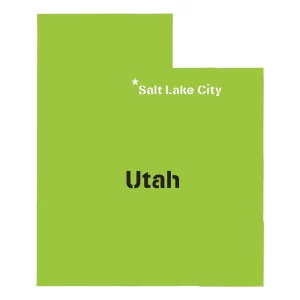
Kratom legality is a convoluted issue in the Yellowhammer State. Over 5 million Americans use kratom regularly, yet Alabama laws remain unclear due to constant changes and debates. This in-depth guide explains kratom’s current legal status, history, and future in Alabama.
A Brief History of Kratom in Alabama
The tropical tree Mitragyna speciosa, known as kratom, has a long history of medicinal use in Southeast Asia. Kratom leaf is usually chewed raw or brewed into tea. At low doses, it acts as a stimulant. At higher doses, kratom becomes more sedating with painkilling effects.
Kratom first arrived on the scene in Alabama in the early 2010s. As kratom shops popped up across the state, the Alabama Law Enforcement Agency (ALEA) began receiving calls claiming it was dangerous.
In May 2016, ALEA banned several synthetic drugs like “Krypton Kratom”, which is adulterated kratom. But they left natural kratom in raw botanical form legal.
The Tipping Point – February 2018
In February 2018, ALEA met with the State Board of Pharmacy and State Health Officer to discuss the kratom issue. They decided to recommend banning kratom’s two primary active alkaloids, mitragynine and 7-hydroxymitragynine.
This immediately criminalized kratom statewide.
According to ALEA, they based this decision on reports from the FDA claiming 36 deaths involving kratom. However, the FDA has been criticized for overstating risks and including deaths where multiple drugs were present.
The kratom community argued the ban would take a safe herbal supplement out of the hands of responsible adult consumers. Pro-kratom advocates highlighted its potential as an alternative pain management tool amidst the opioid crisis.
Roller Coaster Ride – SB226
In early 2019, Senator Arthur Orr proposed SB226 to reverse the kratom ban. The bill would have once again legalized pure, unadulterated kratom leaf and extracts.
SB226 progressed smoothly through the Alabama Senate. But soon after, the House Judiciary Committee added substantial amendments related to age restrictions and labeling requirements.
On May 30, 2019, the legislative session ended without a vote on the heavily amended SB226. So the ban remained in effect by default.
Later in 2020, Senator Orr made another attempt with SB36. This revived kratom legalization bill also failed to reach a final vote before the session ended.
Current Kratom Laws in Alabama
As of January 2024, kratom is still illegal under the February 2018 ALEA public health emergency order. Here are the key facts about kratom’s status:
- Raw kratom leaf, powder, capsules, extracts, and products are banned
- Possession of 2 or more grams is a felony
- Maximum penalties are 10 years in prison and a $15,000 fine
- Alabama retailers cannot sell kratom for human consumption
There are no exceptions for age or medical use. Laws prohibit pure, natural kratom with no other drugs or synthetic chemicals.
The Bigger Picture on Kratom Bans
Alabama is 1 of 6 states with kratom currently prohibited. In 2016 through 2018, a wave of states and cities rushed to ban after the FDA warnings.
But since 2019, the trend has reversed. 6 states have passed Kratom Consumer Protection Acts legalizing and regulating sales of pure kratom. They joined 32 other states where kratom remains legal.
Examples are Arizona, Utah, Georgia, and Louisiana. These states require proper labeling, strictly control adulterated products, and ban sales to minors.
Alabama stands firm with its total kratom prohibition despite the changing legislative landscape nationwide.
What Does the Future Hold for Kratom in Alabama?
Will Alabama maintain one of the strictest stances against kratom in the US? Or will it eventually re-examine the benefits and risks to adults and adopt a regulatory approach?
On one hand, lawmakers may see value in keeping kratom outlawed alongside dangerous synthetic drugs. But banning a natural herb could also force consumers towards truly harmful substances.
Another possibility is the AKA or other groups filing a lawsuit arguing the kratom ban is an unconstitutional overreach. However, federal courts have generally deferred to states on issues of prohibiting or regulating intoxicating plants.
For now, kratom proponents can only hope legislators will reconsider legalization under a KCPA-style regulatory model. Until that day comes, kratom users face harsh penalties for possession in Alabama.
The kratom community continues urging lawmakers to align with the majority of states where regulated kratom sales are permitted. Removing the felony penalties could allow kratom to be a safer natural alternative during the opioid epidemic.
Only time will tell whether Alabama reverses course to legalize and regulate kratom. But for the foreseeable future, it remains banned under the toughest prohibitive laws in the nation.





